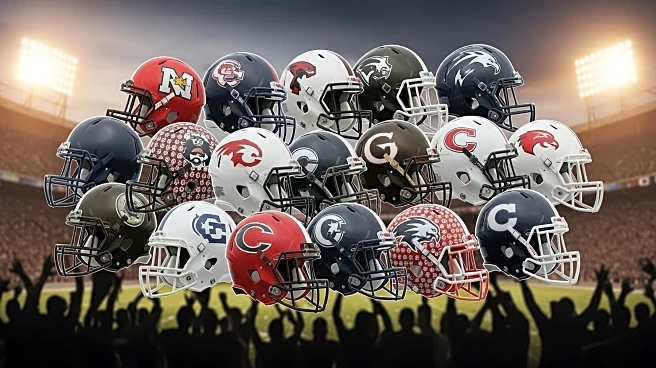What's Happening?
The NCAA transfer portal, introduced on October 15, 2018, has significantly changed the landscape of college football. Previously, players were required to remain with the team they initially signed with,
working their way up the depth chart. This system allowed coaches to build dynasties by fostering player loyalty and commitment to the program. However, the transfer portal now allows players to explore other opportunities if they are dissatisfied with their current situation. The NCAA recently made permanent a one-time transfer rule, initially intended for players in the College Football Playoffs, granting them additional time to enter the portal. This shift has led to a more transient player base, with athletes seeking better NIL deals or more playing time elsewhere, disrupting the traditional powerhouse programs.
Why It's Important?
The introduction of the transfer portal has profound implications for college football. It challenges the ability of coaches to maintain consistent, high-performing teams, as players can easily leave for better opportunities. This has led to a decline in the dominance of historically strong programs, as they struggle to retain top talent. The portal has also shifted the focus from player development and team loyalty to financial incentives and immediate playing opportunities. As a result, the competitive balance in college football is changing, with smaller programs potentially benefiting from acquiring talented players who might have previously been overlooked by larger schools.
What's Next?
The future of college football may see further changes as the transfer portal continues to evolve. Coaches will need to adapt their strategies to retain players and build cohesive teams despite the increased mobility. The emphasis on NIL deals and immediate playing time may lead to more frequent transfers, making it challenging for programs to establish long-term success. Additionally, the NCAA may consider further adjustments to transfer rules to address the growing concerns about player movement and its impact on the sport.
Beyond the Headlines
The transfer portal raises ethical questions about the commercialization of college sports and the impact on student-athletes' education and development. As players prioritize financial gains and playing time, the traditional values of college sports, such as teamwork and perseverance, may be undermined. This shift could lead to a reevaluation of the role of college athletics in higher education and the responsibilities of institutions to their student-athletes.










